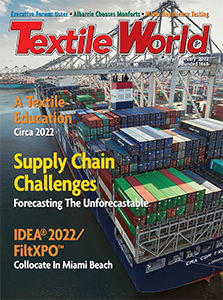几十年来,中国一直是一个缺点的同义词tantly growing economy, stable working conditions and cheap labor costs. But it seems that some things are changing in the Middle Kingdom.
经济学下降(?)
The decline of China’s gross domestic product (GDP) from 7.7 percent in fourth quarter 2013 “down” to 7.4 percent actually is only a little below the targeted 7.5 percent. Due to the satisfactory employment situation, it is reported that the government doesn’t want to implement new short-term economic stimulus packages. On the other hand, weak capital investment growth and a sharp 25-percent decline in construction activities in the real estate sector in first quarter 2014 speak against a quick recovery. Up to now, China’s construction sector has been a reliable indicator of the country’s economic development and situation.
采取不同的步骤
最近几周,中国政府及其中央银行一再强调,中国经济(7.2%至7.5%的增长)将足以提供稳定的就业状况。RUPP报告已多次通知其读者有关此主题的信息。基本上,北京已准备好根据基于市场的流程制定更可持续和雄心勃勃的改革议程的步伐。
但是,由于中国工业产出的发展缓慢,情况变得更加复杂。尽管三月份的制造业产量略强 - 增长了8.8%,而1月和2月的生产率为8.6%,但人们对工业产出的期望很少,或者希望工业产量会迅速恢复。但是,几乎没有任何新回归的迹象。消费部门提供了一些希望,随着2014年3月在1月和2月增长11.8%的零售额增长12.2%。
在鞋厂罢工
Now, China is facing a real problem that could affect the entire economy long-term: A strike at Yue Yuen Industrial Holdings Ltd.’s workshop in Guangdong province in southern China, is impacting the production of branded products including adidas, Puma, Nike, Reebok, Asics, New Balance, Crocs and Timberland, among others. Workers have paralyzed the workshop, demanding higher wages and better social insurance. With 425,000 employees and workshops in China, Indonesia, Vietnam, Mexico and the United States, Yue Yuen, the world’s largest athletic shoe manufacturer, produces some 21.5 million pairs of shoes per month.
Approximately 30,000 Chinese workers have been protesting since April 5 for increased social insurance payments. The strike is one of the largest strikes ever in a private company in China.
No Comment
耐克管理公司不准备向当地媒体发表评论,也没有Yue Yuen的评论。RUPP报告试图在Adidas和Nike网页上打开新闻稿;显然,这些页面已被阻止。阿迪达斯在其开放网页上表示,“有关社会和环境事务(包括劳动问题)的公司信息,可以在adidas-group.com的“可持续性”部分中找到,您可以通过单击来访问该部分这里。”但是,该页面不可用。
And the strike is getting worse. The strikers have blocked access roads to the factory, held solemn vigils and marched through the city center. They have demanded higher wages and better social insurance and are protesting against unfair terms in their working contracts. China Labor Watch (CLW), a New York City-based independent workers’ organization, mentions “tens of thousands of strikers.”
Yue Yuen faces several challenges, including growing local competition and surging labor costs in China. Taiwan-based Pou Chen Group, the parent company of Yue Yuen, produces shoes for more than 60 brands around the world, and has a 20-percent share of the global shoes and casual footwear markets.
The Accusation
Strikers charge that the company is not paying a sufficient amount in social security insurance, as mandated by Dongguan’s social security bureau. According to company regulations, employers must pay 11 percent of their income as the company contribution to social security insurance, while the workers pay 8 percent. The workers say that Yue Yuen was only paying the 8 percent deducted from worker salaries, and not its 11-percent contribution. Top management says that it will start to pay the insurance fees for the workers beginning May 1. Due to rising labor costs, Pou Chen has gradually shifted its production lines to Vietnam and Indonesia. It has cut 51 of its production lines in mainland China, or 20 percent of the mainland total. Yue Yuen sales in 2013 totaled US$7.58 billion, a 4.1-percent increase over the previous year.
起初,该主题没有在国家控制的媒体中报道。现在发生了变化:甚至官方政府网站也在报告。同时,中国领导人认为有机会谴责当局的任意性和腐败,并推动地方当局做出权利。最重要的是,北京对该地区的工资正在上升感兴趣。到目前为止,纺织品和轻型行业已经统治了该地区。中国政府希望在那里建立更多高科技行业。
工人对低工资和不良工作条件的不满是很大的,而且这种暴力暴动从未在该地区发生。
Pou Chen stated its promise to increase workers’ welfare contributions could affect its financial performance. The strike has also led to concerns that renowned sports footwear brands could cut their orders by 20 percent if costs rise.
总部位于香港的权利集团中国劳动公告在2014年第一季度报告了该国有202起劳工纠纷,同比增长30%。
减少资本投资
Experts report that, apart from China’s industrial production, the decrease in fixed investments is proving to be an economic barrier. In recent years, investments have grown by more than 20 percent annually. In the first quarter of 2014, there was an increase of “only” 17.6 percent. The reduced investment growth is considered to be a desirable development to reshape the economy and foster domestic consumption. However, the weaker development of industrial production should be absorbed by a dynamic service sector and stimulate private consumption.
On the other hand, experts are predicting a revival of global trade. If this is the case, the Chinese export industry would likely benefit. This could be a good sign for the upcoming ITMA Asia + CITME, which will take place very soon in Shanghai. One can hope for the best!
2014年4月22日




